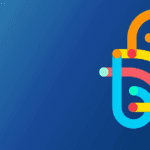In a world increasingly influenced by AI, the question arises: Is learning to code in 2025 still relevant? Despite claims that AI will replace coding, the truth is far from it. Coding remains a gateway to thriving in the AI-driven era, offering opportunities to innovate, integrate, and lead. This article delves into why learning to code in 2025 is essential and provides actionable strategies for navigating the future of technology.
This article will dissect the realities of coding in the AI age, outline why coding is more relevant than ever, and provide actionable strategies for navigating this rapidly evolving landscape.
The AI Hype: Reality vs. Misconceptions
AI Adoption Is Still Nascent
Despite the endless headlines about AI breakthroughs, only 6.1% of U.S. companies actively leverage AI in their business operations. While tech giants like Microsoft and Google dominate the conversation, the overwhelming majority of businesses are still exploring AI adoption. This means there is an enormous untapped market where coding expertise is invaluable.
Developers Are the Linchpin of AI Integration
Only 2.5% of the global workforce comprises developers. As AI continues its inevitable march toward ubiquity, the demand for skilled developers who can integrate, optimize, and innovate with AI technologies will grow exponentially.
Insight: Low-code and no-code platforms have simplified prototyping, but scaling and customizing robust systems will always require skilled developers.
Debunking the “AI Will Replace Coding” Myth
1. Coding Fuels AI’s Core
AI doesn’t create itself. Behind every intelligent system is a team of developers who write the code to train, deploy, and optimize these models. The explosion of AI applications has, in fact, increased the demand for developers who can create the underlying infrastructure.
2. Low-Code Is Not a Replacement
While low-code tools help non-technical users create MVPs (Minimum Viable Products), turning an MVP into a market-ready product requires robust coding skills. These platforms are complementary to, not a replacement for, traditional software development.
3. AI Enhances, Not Replaces, Coders
AI can assist developers by automating repetitive tasks, debugging code, or suggesting optimizations. But it’s the developer’s expertise that ensures the AI’s outputs are meaningful and functional.
Eight Pillars of Success in Learning to Code (2025 Edition)
1. You Must Love the Craft
In 2025, coding is not just a career—it’s a calling. The developers who thrive are those who genuinely enjoy building, problem-solving, and experimenting with technology. Without passion, the challenges of this field can quickly become overwhelming.
2. Master the Fundamentals Through Hard Work
Learning to code is a marathon, not a sprint. AI tools may simplify some tasks, but understanding concepts like data structures, algorithms, and asynchronous programming is non-negotiable. These foundational skills give you the flexibility to adapt as technology evolves.
Example Path:
- Start with Python for general programming.
- Explore JavaScript for front-end and back-end development.
- Delve into SQL and NoSQL for database management.
- Learn APIs for integration and automation.
3. Live and Breathe Code
To excel, you must immerse yourself in the tech ecosystem. Follow industry news, contribute to open-source projects on GitHub, write blogs, and engage with the developer community. This will not only deepen your knowledge but also increase your visibility in the job market.
4. Specificity in Learning Is Key
A vague goal like “learn to code” won’t suffice. Create a detailed roadmap with specific milestones. Use tools like Trello, Notion, or Miro to break down your learning journey into manageable chunks.
Pro Tip: Follow structured learning paths like Colt Steele’s Web Developer Bootcamp or Boot.dev for back-end programming.
5. Stay Focused Amid Distractions
The abundance of frameworks, tools, and technologies can be overwhelming. Stick to your roadmap and avoid getting distracted by every new trend. Consistency will yield far greater results than jumping between tools.
6. Build Your Network
Networking is critical for breaking into the tech industry. Attend local meetups, join developer communities on Slack or Discord, and actively participate in online discussions on Twitter or LinkedIn. Relationships built during your learning phase can lead to job referrals later.
7. Overcome Your Fears
Impostor syndrome is common among self-taught developers. The key is to believe in the value of your skills and embrace the learning process, even when it feels daunting. Treat failed interviews and rejected applications as stepping stones to success.
8. Use AI Sparingly While Learning
AI tools like GitHub Copilot and ChatGPT can assist you, but relying on them too early can stunt your growth. Focus on mastering the basics without shortcuts. Once you’ve built a solid foundation, use AI as a productivity booster.
The Expanding Job Market for Coders
AI Consulting
The rise of AI consulting firms has created a booming market for developers. These firms need coders who can integrate AI into existing systems, optimize performance, and ensure scalability.
Startup Ecosystem
Startups are leveraging low-code platforms for rapid prototyping, but they eventually hire developers to transform MVPs into robust, scalable solutions. This trend underscores the need for skilled coders who can navigate both AI and traditional development paradigms.
Conclusion
In 2025, coding remains an indispensable skill, even as AI reshapes industries. For those willing to put in the work, adapt to new challenges, and immerse themselves in the craft, the opportunities are boundless.
The road isn’t easy, but it’s worth traveling. Whether you’re looking to build AI systems, optimize existing applications, or lead the next wave of technological innovation, coding is your gateway to the future.
Explore More
- AI Services: Explore our AI services for more details.
- Digital Product Development: Discover our digital product development expertise.
- Design Innovation: Learn about our design innovation approach.





Leave a Reply